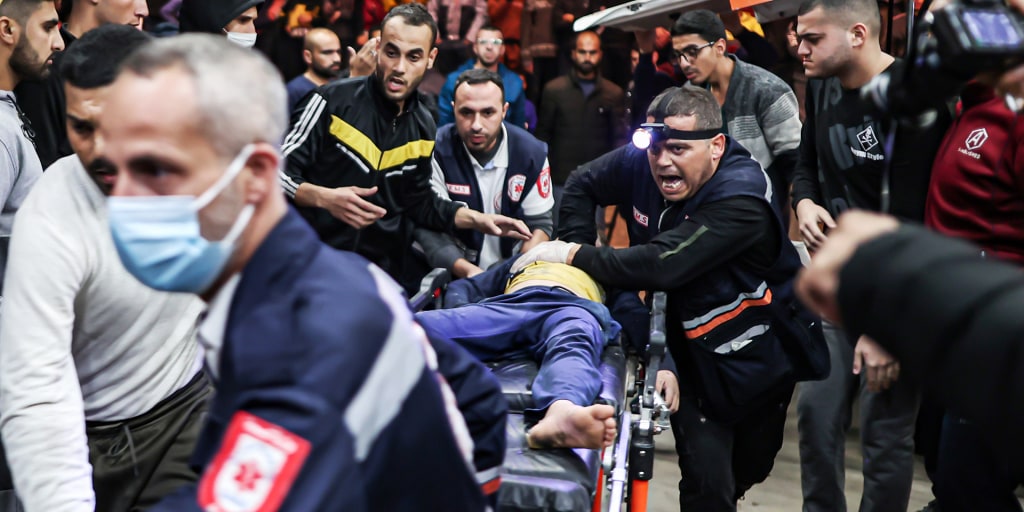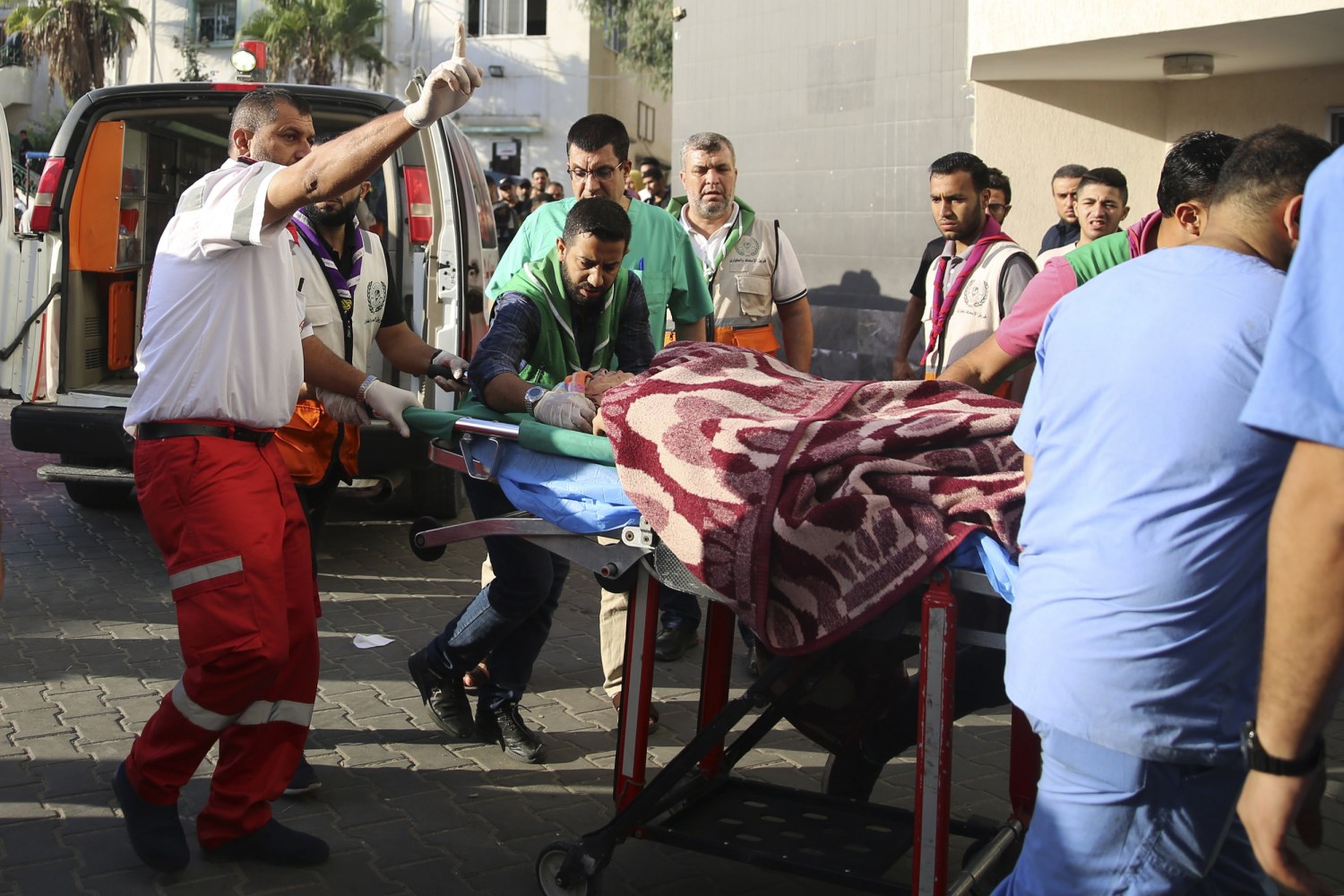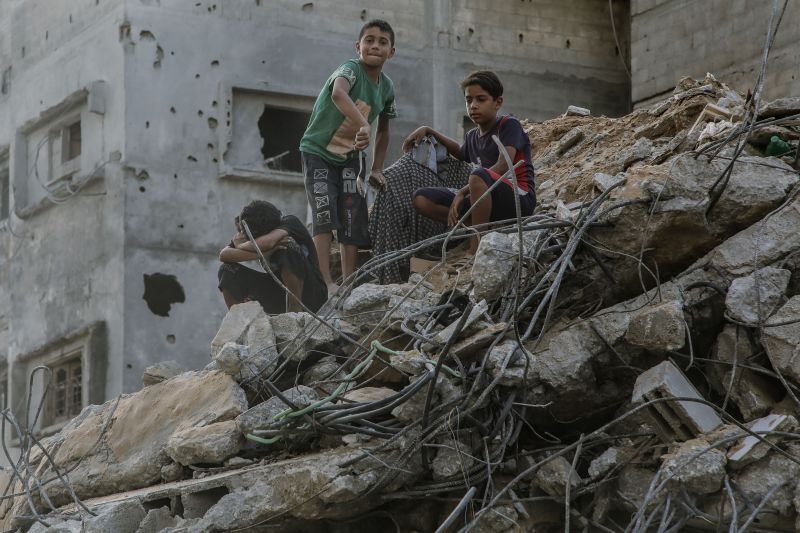Gaza's Healthcare System Faces Imminent Catastrophe Amidst Israeli Offensive

Gaza's hospitals are teetering on the brink of collapse as of early July 2025, with medics warning of an impending disaster. The situation is driven by a widening Israeli offensive, critical fuel shortages, and an overwhelming influx of casualties, leaving the healthcare system crippled and unable to meet the dire needs of the population.
Critical Fuel Shortages Force Hospital Closures and Service Suspensions
Hospitals across the Gaza Strip, including major facilities like Nasser Medical Complex and Al-Shifa Hospital, are grappling with severe fuel shortages. This scarcity threatens the shutdown of essential services such as intensive care units (ICUs) and operating rooms, jeopardizing the lives of countless patients.
Nasser Medical Complex in Khan Younis ceased admitting new patients on July 10-11 due to the escalating fuel crisis and the advance of Israeli troops in the area. The lack of fuel has made it impossible to maintain essential functions, effectively forcing a partial closure of the facility.
Al-Shifa Hospital, the largest medical complex in Gaza, announced on July 1 that it had to suspend dialysis services to conserve dwindling fuel reserves for critical care units. While the World Health Organization (WHO) delivered 3,000 liters of diesel to Al-Shifa on July 2, this amount is woefully inadequate, covering less than a day of Gaza's overall fuel needs.
Reports indicate that some hospitals are forced to operate their generators for a mere hour at a time due to the acute fuel scarcity. This rationing of power severely restricts their ability to provide consistent and life-saving care.
The total ban on fuel entering Gaza has been in effect for over four months, since March 2, 2025, exacerbating the already precarious situation and pushing hospitals to the edge of complete shutdown. This prolonged blockade has had a devastating impact on hospital operations, leaving them unable to function effectively.
As of May 2025, only 19 of the Gaza Strip's 36 hospitals remained operational, with many suffering severe damage or destruction. The situation has continued to deteriorate since then, further straining the already overwhelmed healthcare system.
Overwhelmed Healthcare System Struggles to Cope with Mass Casualties

The remaining operational hospitals are severely under-resourced, with all available beds occupied and patients often being treated on the floor due to the sheer volume of injuries. Medical staff are exhausted and struggling to manage the massive influx of trauma patients, with some emergency departments receiving 100-150 patients per hour.
The 60-bed Red Cross Field Hospital in Rafah, one of the last fully functional hospitals, is operating far beyond its maximum capacity. It is treating a relentless stream of injuries, predominantly from gunfire, particularly since new aid distribution sites opened around May 27. The hospital's limited resources are stretched to the breaking point, making it difficult to provide adequate care to all those in need.
In addition to the overwhelming number of patients, hospitals are facing critical shortages of essential medical supplies, water, and food, further compounding the crisis. The lack of basic necessities hinders the ability of medical staff to provide effective treatment and care.
Dr. Mohamad Abu Sulmeyeh, Director of Al-Shifa Medical Complex, highlighted the severe suffering of cancer patients due to the absence of chemotherapy and radiotherapy. The lack of these essential treatments is condemning many cancer patients to unnecessary pain and suffering.
Around 100 premature babies in Gaza City hospitals are at extreme risk due to fuel shortages impacting incubators. With limited resources, doctors are forced to place multiple babies in a single incubator, increasing the risk of infection and other complications. A recent report has revealed that doctors are struggling to save newborns' lives due to the lack of fuel. This dire situation underscores the devastating impact of the blockade on the most vulnerable members of the population.
Laboratories and blood banks are also facing critical shortages, while the demand for blood units has sharply increased due to the high number of trauma cases. The lack of essential laboratory supplies and blood products further hinders the ability of hospitals to provide adequate medical care.
Widening Israeli Offensive and Displacement Intensify the Crisis

The Israeli ground offensive has expanded into Khan Younis, with troops and tanks advancing near Nasser Medical Complex on July 10-11, forcing its partial closure. The ongoing hostilities and new evacuation orders across northern and southern Gaza are threatening to push more health facilities out of service, further diminishing the already limited healthcare capacity.
The conflict has led to mass displacement, with over 2 million Palestinians now crammed into less than 15% of Gaza's total area. This overcrowding exacerbates the humanitarian and health crises, increasing the risk of disease outbreaks and further straining resources.
Humanitarian Catastrophe and International Response

According to the Gaza Ministry of Health, over 57,000 Palestinians have been killed and over 137,000 injured since October 7, 2023, with a significant increase in casualties since March 18, 2025. These figures highlight the devastating human cost of the ongoing conflict.
The UN Human Rights Office reports that almost 800 people have been killed while trying to receive food aid in Gaza since late May. These incidents, particularly around private aid hubs, have been condemned as potential war crimes. The desperation for food and basic necessities is driving people to take extreme risks, often with fatal consequences.
The UN Human Rights Office has also reported that 410 Palestinians have been killed by the Israeli military while trying to fetch from controversial new aid hubs.
International organizations like Médecins Sans Frontières (MSF) and the World Health Organization (WHO) have repeatedly called for an immediate and sustained ceasefire, unfettered access for humanitarian aid (including fuel and medical supplies), and an end to attacks on healthcare facilities and personnel. MSF has gone so far as to state they are witnessing Israel commit genocide.
The systematic destruction of healthcare facilities is a major concern, with multiple incidents of attacks on hospitals and violence against medical personnel reported. These attacks further cripple the healthcare system and deny access to essential medical care for the civilian population.
Controversy Surrounds Attacks on Hospitals and Restrictions on Aid

Controversy surrounds Israel's allegations that Hamas uses hospitals for military purposes, which international organizations argue does not justify attacks on protected medical facilities and personnel. International law prohibits the targeting of hospitals and medical personnel, regardless of alleged military use.
The UN Human Rights Office report from December 2024, covering the period from October 2023 to June 2024, raised serious concerns about Israel's compliance with international law regarding attacks on hospitals. The report noted that deliberate destruction of healthcare facilities may amount to a war crime.
The severe restrictions on fuel and aid entry are leading to a catastrophic humanitarian situation, with warnings of famine and widespread disease outbreaks, such as acute watery diarrhea and acute jaundice syndrome. The lack of access to essential resources is pushing the population to the brink of starvation and disease.
The inability to provide adequate medical care is leading to preventable deaths, particularly among vulnerable populations like premature babies, kidney patients, and those with trauma injuries. The healthcare system's collapse is resulting in unnecessary suffering and loss of life.